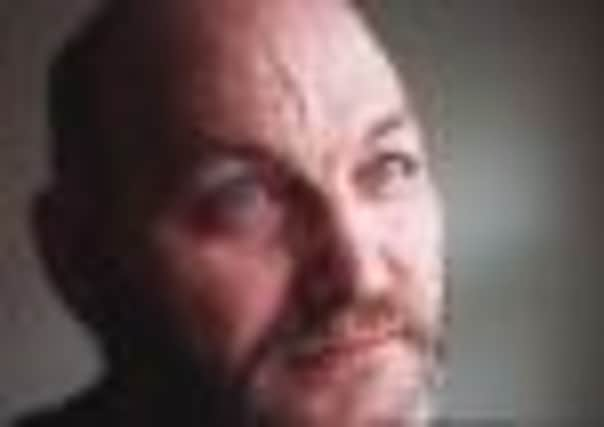Robert Black: the ‘feeble coward’ is told to come clean


In order to give his family some peace of mind, John Tate, who has terminal prostate cancer, urged the “feeble coward” to reveal “how many more” young girls he took as victims.
Detectives confirmed that they are to continue investigations into unsolved child disappearances after the paedophile was found guilty at Armagh Crown Court of kidnapping and murdering Jennifer Cardy in Northern Ireland in 1981.
Advertisement
Hide AdAdvertisement
Hide AdWhile Black, 64, has now been convicted of four child murders, he is suspected of involvement in many other crimes, notably the 1978 abduction of Devon schoolgirl Genette.
Speaking after the jury delivered its unanimous verdicts yesterday, Detective Superintendent Raymond Murray from the Police Service of Northern Ireland (PSNI) said: “I certainly think the story of Robert Black doesn’t end here today. There are lines of inquiry which we still have and we are still looking at.”
Black was convicted in 1994 of three child murders in the 1980s – 11-year-old Susan Maxwell from the Scottish Borders, five-year-old Caroline Hogg, from Edinburgh, and ten-year-old Sarah Harper from Morley, Leeds – and a failed abduction bid of a girl in Nottingham in 1988.
But Mr Tate, 69, said the Scot should admit any other murders he committed over the years. “I am relieved for Jennifer’s family,” he said. “After 30 very long years they finally have some closure.
“I just wish Black would now give the rest of us the same sort of closure without going through the hell of a trial. He said: “Why doesn’t he come clean for the sake of the families? If there are any more victims, how many more are there?
“He is never going to be released from prison. It is very difficult. Part of me believes he did not kill Genette. But there may be things the police are keeping from me that does put him in the frame.
“I wish he would have the guts to be a man for once in his life and confess to everything that he has done.
“To me, Robert Black is not a man in any sense – this big, burly Scotsman is a feeble coward who can only use his strength over defenceless little girls. That is monstrous behaviour.”
Advertisement
Hide AdAdvertisement
Hide AdJurors in Armagh took four hours and 15 minutes over two days to find Black, a former delivery driver, guilty of kidnapping and murdering Jennifer on 12 August, 1981.
Outside the court, the schoolgirl’s father, Andy, said the family’s strong Christian faith had sustained them through the horrors of the trial.
He said: “Robert Black stole the life of our daughter, Jennifer, but Robert Black didn’t steal the lives of me and my family – we’ve lived a happy, prosperous life, but we miss Jennifer each and every day.”
Mr Cardy, flanked by his wife Patricia, daughter Victoria and sons Mark and Philip, said the family had prayed for Black in the wake of the verdict, but believed he should pay the ultimate price for his crimes.
“I would have to say that I would still say that somebody who commits murders like this, I believe their lives should be taken, I believe they should be put to death,” he said.
Mrs Cardy said the verdict had not brought closure. “I will be really honest – I don’t think we will ever have closure because our daughter has gone, but we have the relief of knowing that the perpetrator of this gruesome, horrible crime has been brought to justice – and that does give us a peace and relief.”
The killer, who is already serving life in Wakefield prison, was told by judge Mr Justice Ronald Weatherup: “You have been convicted by a jury of murder. There is only one sentence that will be imposed by law. That’s the sentence of life imprisonment.”
The minimum term Black will have to serve will be set at a separate hearing before Mr Justice Weatherup in Belfast next month. Black’s lawyers are considering whether they will appeal.
Advertisement
Hide AdAdvertisement
Hide AdThe schoolgirl was snatched as she cycled to a friend’s house in the quiet Co Antrim village of Ballinderry. Her body was found six days later in a dam behind a lay-by 15 miles away at Hills-borough, Co Down.
Det Spt Murray said the focus of the Black investigation would now move.
“I think it is a growing body of evidence that pertains to Robert Black which will always be of use to somewhere else,” he explained. “I think there is still more work to do around Robert Black.”
Black has been questioned about Genette Tate’s disappearance a number of times, but three years ago the Crown Pro-secution Service decided not to charge him on the grounds of insufficient evidence.
It is understood detectives from Devon and Cornwall Police have been closely monitoring events in Armagh Crown Court, and yesterday’s conviction, in a case where crucial bad character evidence was allowed to be presented to the jury, could prompt them to submit another file to the CPS.
Roger Orr, a retired Loth-ian & Borders detective chief superintendent who has been investigating Black for more than 20 years, said the Tate case was the only realistic prosecution left, adding that he was sure the convicted quadruple child killer harboured many more secrets.
“It’s not for me to say what will happen with Genette Tate, whether this [the latest trial] will kick it back in again or whether it will just finish at that point,” he said.
Black’s current criminal record shows two convictions for sexually abusing young girls in the 1960s, then a long gap before the first murder he committed – Jennifer’s in Northern Ireland in August 1981.
He also killed Susan Maxwell in 1982, Caroline Hogg in 1983 and Sarah Harper in 1986.
Mr Orr said: “My gut feeling is there are gaps there, he’s done more.”